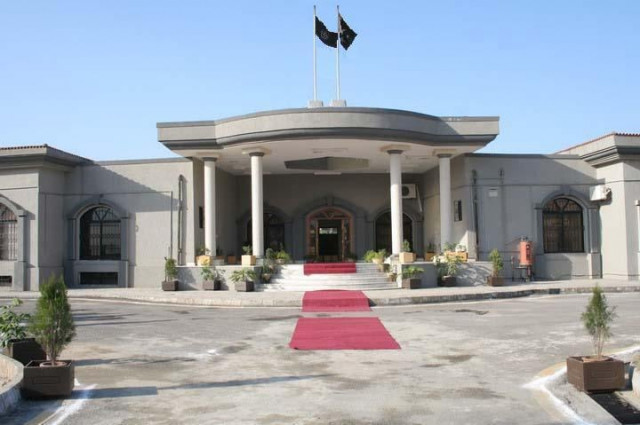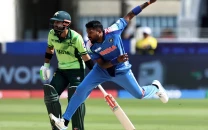Court halts execution of five ex-naval officers
IHC seeks opinion of Navy chief within three weeks

The Islamabad High Court has stayed the execution of five former naval officers, who were sentenced to death through a court-martial for their involvement in a corruption scandal, it surfaced on Tuesday.
In a written order issued for Monday’s hearing, Justice Babar Sattar wrote that the court was considering the petitioners' claims that they were denied a fair trial and that their right to life -- as guaranteed by Articles 9 and 10 of the Constitution -- was being violated.
The judge added that the death sentence of the petitioners should not be executed until the disposal of their plea considering the question related to a fair trial.
According to the order, the lawyers for the petitioners claimed that their clients were not provided with adequate representation and that the trial was unfair.
They continued that the evidence against the petitioners was not shared with them as well as they were denied access to the documents and records of the court of inquiry.
The lawyers further told the court that an appeal, which filed against the death sentence without access to these documents, was dismissed.
They informed the IHC that the reasons for the appeal court upholding the sentence were not shared with their clients.
Also read: Navy thwarts major drug smuggling attempt in Arabian Sea
The lawyers maintained that they were given limited access to documents despite a court order and this prevented their clients from defending their rights.
Assistant Attorney General Akeel Akhtar Raja told the court that Chief of Naval Staff Admiral Naveed Ashraf had the authority to access the documents and according to rule 193 of the Pakistan Navy Rules, 1961, discretion was vested with him to form “an opinion that supply of any proceedings may be prejudicial to the safety or interests of the state”.
He added that the naval chief believed that sharing the details of the proceedings, including the findings recorded by the general court martial and the order passed in appeal upholding the death penalty, would be detrimental to the interests of the State.
The order read: “It appears to be the contention of the state is that given the opinion of the chief of naval staff that proceedings and reasoning for passing the death sentence cannot be shared with those against whom such death sentences have been passed, they have no further remedy under the law and the Constitution. The question therefore arises as to how the interests of the state in secrecy are to be balanced against the interests of a citizen to be informed of the reasons for which the state has decided to hang him and to provide him the relevant reasoning and material to be able to defend himself.”
The court ordered instructed the respondents to file the naval chief’s opinion within three weeks as well as why he formed the opinion that sharing the proceedings about the petitioners would be detrimental to the state’s interests.
The hearing was adjourned till July 1.



















COMMENTS
Comments are moderated and generally will be posted if they are on-topic and not abusive.
For more information, please see our Comments FAQ